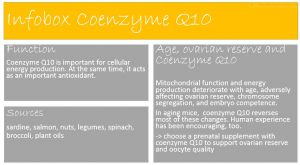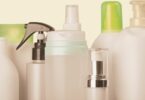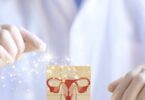Importantly, whatever is good for your own health and wellbeing, benefits also your oocyte quality. Thus, simply try to avoid any harmful influences and add the following 4 steps to your overall healthy lifestyle to be on the right track!
Step 1: Relax
Psychologic stress may reduce oocyte competence by shifting blood flow away from the ovary as part of the classic “fight or flight” physiologic response, and methods to reduce stress or the body’s reaction to stress improve pregnancy success.
The problem is: Life is closely linked to stressful events, ranging from (hopefully very rare) traumatic ones to less devastating but still upsetting situations, such as an ongoing conflict at work. In addition to this, we live in a fast paced world, and we are constantly trying to rush things in order to meet all of our commitments.
To make things worse, having fertility issues itself presents as a major stressor: the stress of infertility has been compared to a diagnosis of cancer or infection with human immunodeficiency virus.
Thus one of the most important steps towards better oocyte quality is to allow for more relaxation in your life: Make sure you get enough sleep and book some time in your calendar for yourself. Use this time to do something quiet and enjoyable, such as going for a walk, taking a bath, meditate, have a massage, or anything else that will help you to relax for a while.
Step 2: Improve blood flow and proper oxygen supply
As already shown above, a healthy blood flow and with it, proper oxygen supply is key to healthy ovaries and healthy oocytes. In addition to stress, lack of exercise, and dehydration can impair it.
To increase blood flow to the ovaries it is important to stay hydrated and move regularly.
For hydration, preferably choose high-quality drinking water. Caffeine in moderation is okay and recent studies suggest that moderate alcohol consumption now and then is nothing to worry about, either. Yet best stay clear of sodas and lemonades high in sugar.
Include more exercise in your daily routine by choosing the stairs instead of the escalator or elevator and prefer a walk over going by car or train, whenever possible. Pursue sport activities you enjoy, such as brisk walks, jogging, swimming, hiking, yoga, the elliptical, spinning, pilates, dancing, whatever- just find something you enjoy doing, and do it regularly. While some clinicians advise against overexertion while trying to conceive, it is recommended to engage in mild to moderate aerobic activity several times a week.
Step 3: Nutrition
What you eat can impact not only your overall well-being, but also the health of your ovaries and oocytes. Therefore it is vital to stick to healthy eating habits and maintain a healthy weight. Prefer organically grown, local and seasonal produce to processed food and opt for options rich in precious micronutrients. At the same time, stay clear of too much sugar, trans fats and any foods containing GMOs.
Step 4: Add some extra support
Micronutrients have been described as the “mighty micros” and indeed having proper micronutrient levels is vital for oocyte quality. Therefore, it is advisable to have levels of vitamin D and iron checked and to take a prenatal multivitamin.
This should include highly dosed folic acid in combination with a comprehensive multivitamin- and mineral-supply. Importantly, if you have any special dietetic requirements, they must be taken into account. For example, women with thyroid autoimmunity need to avoid any additional iodine, but require more selenium, whereas women with endometriosis need more antioxidants than somebody else, and so forth.
For those of you approaching a mature reproductive age (35 and above), it is coenzyme Q10 that is essential.

This micronutrient is involved in energy production in the oocyte’s so called mitochondria. These cellular organelles are the cell’s power plants, generating all the energy the oocyte requires.
Mitochondrial function and energy production deteriorate with age, adversely affecting ovarian reserve, chromosome segregation, and embryo competence. In aging mice, the mitochondrial cofactor coenzyme Q10 reverses most of these changes. Early human experience has been encouraging, although only a small study using a shorter duration of intervention compared with the murine model has been carried out. This is why a lot of doctors are still a bit hesitant about recommending it, but it is important to know that no side effects whatsoever have been described so far. Therefore, if you are approaching 35 or are already above, it is recommendable to choose a prenatal supplement with coenzyme Q10 to be on the safe side! Also, according to a recent study by Gat et al (2016) , it might be an important approach if your ovarian reserve is diminished (which may sometimes be even earlier than 35 years).
By following these 4 steps, you can not only improve your overall well-being and health considerably, but also contribute markedly to oocyte quality, thus improving your chance of having a healthy baby soon!
References:
Bentov Y, Yavorska T, Esfandiari N, Jurisicova A, Casper RF. The contribution of mitochondrial function to reproductive aging. J Assist Reprod Genet. 2011 Sep;28(9):773-83.
Bentov Y, Casper RF. The aging oocyte–can mitochondrial function be improved? Fertil Steril. 2013 Jan;99(1):18-22.
Babayev E, Seli E. Oocyte mitochondrial function and reproduction. Curr Opin Obstet Gynecol. 2015 Jun;27(3):175-81
Ben-Meir A, Burstein E, Borrego-Alvarez A, Chong J, Wong E, Yavorska T, Naranian T, Chi M, Wang Y, Bentov Y, Alexis J, Meriano J, Sung HK, Gasser DL, Moley KH, Hekimi S, Casper RF, Jurisicova A. Coenzyme Q10 restores oocyte mitochondrial function and fertility during reproductive aging. Aging Cell. 2015 Oct;14(5):887-95.
Lerchbaum E, Rabe T. Vitamin D and female fertility. Curr Opin Obstet Gynecol. 2014 Jun;26(3):145-50.
Gat I, Blanco Mejia S, Balakier H, Librach CL, Claessens A, Ryan EA. The use of coenzyme Q10 and DHEA during IUI and IVF cycles in patients with decreased ovarian reserve. Gynecol Endocrinol. 2016; Jul;32(7):534-7.
Özcan P, Fıçıcıoğlu C, Kizilkale O, Yesiladali M, Tok OE, Ozkan F, Esrefoglu M. Can Coenzyme Q10 supplementation protect the ovarian reserve against oxidative damage? J Assist Reprod Genet 2016; 33:1223–1230








Thanks, Loads of facts!